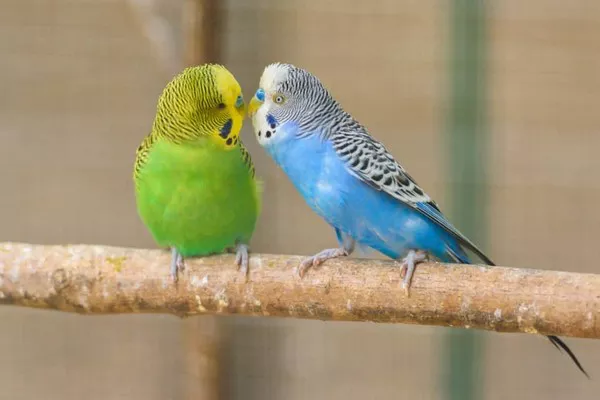African Greys, renowned for their intelligence and striking plumage, are popular companion birds among avian enthusiasts. However, one common concern among prospective owners is the noise level associated with these majestic birds. In this article, we delve into the vocal tendencies of African Greys, exploring why they might be noisy, if they are talkative, and how to address excessive noise.
Why is my African GREY so noisy?
Understanding the factors contributing to the vocalizations of African Greys is crucial for responsible ownership. African Greys are inherently social creatures, and their vocalizations serve various purposes. One primary reason for their noise is communication. In the wild, these birds use vocalizations to convey messages, establish territory, and bond with their flock. In a domestic setting, an African Grey might become noisy if it feels lonely, bored, or anxious. Ensuring a stimulating environment, with toys and social interaction, can alleviate excessive vocalizations.
The Nature of African Grey Vocalizations
African Greys are known for their impressive ability to mimic human speech and other sounds. These parrots can develop an extensive vocabulary, demonstrating their cognitive prowess. However, this vocal talent can sometimes translate into noise, especially if the bird is seeking attention or attempting to communicate. While their vocalizations are generally not as loud as some other parrot species, the clarity and precision of an African Grey’s calls can make them stand out.
What is the loudest parrot?
In the avian world, noise levels can vary significantly among different parrot species. While African Greys are not considered the loudest, the title of the loudest parrot often goes to the Moluccan Cockatoo. These flamboyant birds are known for their powerful and piercing calls.
Comparatively, African Greys exhibit a more moderate noise level, making them a suitable choice for individuals who desire a vocal yet manageable avian companion.
Are African Greys talkative?
One of the endearing qualities of African Greys is their talkative nature. These birds have an impressive capacity for learning and mimicking human speech. Owners often find joy in engaging conversations with their African Greys, who can surprise with their ability to grasp context and appropriately use learned phrases. While this talkativeness adds charm to the relationship, it’s essential to be aware that increased chatter may accompany moments of excitement or a desire for interaction.
Addressing Excessive Vocalizations
If you find your African Grey’s noise level exceeding what you consider manageable, there are several strategies to address the issue. Firstly, evaluate the bird’s environment and ensure it is mentally stimulated.
Introduce toys, puzzles, and activities that encourage mental engagement. Additionally, spending quality time interacting with your African Grey can alleviate feelings of loneliness or boredom, reducing the need for excessive vocalizations.
Training and Positive Reinforcement
Training plays a pivotal role in modifying your African Grey’s behavior. Implementing positive reinforcement techniques can be highly effective. When the bird remains quiet or exhibits desirable behavior, reward it with treats, praise, or attention. Consistency is key in reinforcing positive habits, and over time, the parrot will associate quietness with positive outcomes.
Providing a Routine
African Greys thrive on routine, and establishing a consistent daily schedule can contribute to a more settled and less noisy companion. Ensure that the bird has a predictable routine for feeding, playtime, and sleep. This stability can reduce anxiety and create a sense of security, minimizing the likelihood of excessive vocalizations.
Environmental Considerations
The surroundings of your African Grey’s living space also play a role in its noise level. If the bird is placed in a high-traffic area or exposed to frequent disturbances, it might become more vocal in response. Consider relocating the cage to a quieter spot and providing a cozy retreat where the bird can feel secure.
Seeking Professional Advice
If efforts to curb excessive vocalizations prove challenging, seeking the guidance of a professional avian behaviorist or veterinarian is a prudent step. These experts can assess the bird’s behavior, offer tailored advice, and rule out any potential health issues that might contribute to increased vocalizations.
Conclusion
In conclusion, African Greys are not inherently noisy in the same way some other parrot species might be. Their vocalizations are a form of communication, and understanding the reasons behind their calls is crucial for responsible ownership.
By providing a stimulating environment, incorporating positive reinforcement, and addressing potential stressors, owners can foster a harmonious relationship with their African Greys, enjoying the delightful chatter without being overwhelmed by excessive noise.
Related Topics:
How long do Timneh African Greys live?
Are African Greys Good Family Pets?Facts You Must Know
African Greys Are Loud! Here Is What You Can Do

























